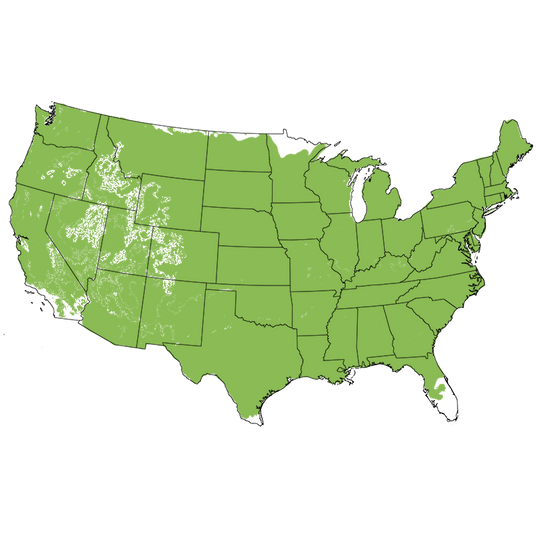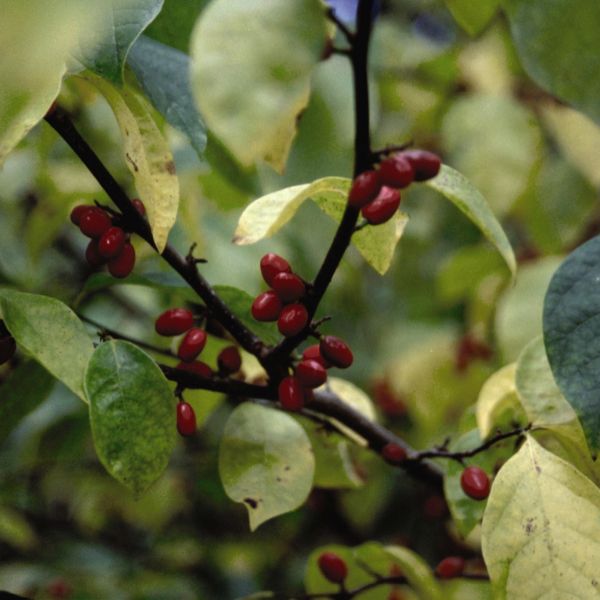Spice Bush
Lindera benzoin
Planting & Care
Planting & Care
Delivery and Shipping
Delivery and Shipping
Preorder Shipping Schedule
We ship your plants when it's safe to transport them to your zone. Dates are estimated and subject to weather delays.
| Zone 3-4 | Week of March 30th |
| Zone 5 | Week of March 16th |
| Zone 6 | Week of March 2nd |
| Zone 7 | Week of February 23rd |
| Zone 8-12 | Week of February 15th |
Shipping Rates
Ships in 3-4 business days • Tracking provided • Weather protected
| Under $50 | $9.99 |
| $50 - $99.99 | $14.99 |
| $100 - $149.99 | $16.99 |
| $150 - $198.99 | $24.99 |
| $199+ | FREE |
✓ Zone-specific timing • ✓ Professional packaging • ✓ Health guarantee

Plant Sentry™ Protected
Your order is protected by our compliance system that:
- Prevents restricted plants from shipping to your state
- Ensures plants meet your state's agricultural requirements
- Protects gardens from invasive pests and diseases
Although most flowering plants supply nectar for butterflies, there are only a few plants that are the preferred food for caterpillars. Take the next thrilling step in turning your landscape into a real habitat...the easy way! Not only will you love the good looks of native Spice Bush (Lindera benzoin), you'll appreciate their spiced citrus scent. Also known as Spicebush, these aromatic yellow-green blooms are held along early spring's bare branches in cute clusters.
Watch for the thick, oblong, light green leaves to emerge. They'll grow to five inches long and also offer a spicy fragrance when they are crushed. The fragrance is a delectable way to start off the spring season. Each clustered inflorescence can have up to 15 star-shaped, sunny-colored blooms that work to support pollinators. Once fall temperatures start to dip, the leaves turn an attractive glowing-yellow hue. Spice Bush starts turning early for a very pretty start to the autumn season.
Black Spicebush Swallowtail butterflies lay their white eggs on the underside of the leaves. Newly hatched larva caterpillars feed on the leaves and grow quickly. These cunning caterpillars are camouflaged with false eyespots to resemble adorable, tiny snakes! This gives them protection from predators and will enchant the young naturalists in your life. Dry the leaves for yummy-smelling potpourri. The leaves and twigs were once used for tea.
Planting and Application:
All season long, this rounded shrub provides a lovely display and screen. Spice Bush is dioecious, with both male plants and female plants. It's recommended to grow at least three to improve the chances of pollination. And you and your feathered friends want increased pollination! If pollinated by a male pollinator, the flowers of female plants give way to bright red, eye-catching drupes which are largely hidden by the foliage until the leaves drop. Look fast, as the showy fruit is very attractive to songbirds!
Beyond feeding birds, these shrubs are fantastic privacy and screening, shelterbelts and for stopping drifting snow. Turn a suburban lot into a naturalized paradise! Plant these desirable shrubs as a hedge, or in an informal grouping. They'll love a spot near a water feature, as their natural setting is along stream beds and creeks. Try an undulating curve along the dappled edge of woodlands for their bold yellow tones in spring and fall. This native deciduous shrub has a broad, rounded habit and makes an excellent backdrop in a modern shrub border or Butterfly Garden.
- Fragrant Blooms & Leaves
- Unique Yellow Flowers Held on Bare Branches
- Lush, Rounded Shrub & Golden Fall Color
- Native Host Plant, Beneficial Pollinators & Bird-Friendly
- Showy Screen or Hedge, Rain Garden & Habitat
#ProPlantTips for Care:
Grow them in full sun for the most compact growth. Don't worry if you've run out of full sun. An established Spice Bush tolerates partial shade, moist soils, and even soils that dry out on occasion. Fall color is best in sunny areas and the habit becomes more open and wide-spreading in full shade. Give them slightly acidic, well-drained soils. Mulch with pine bark or pine straw to a depth of three inches, then pull it back away from directly touching the stems.
- Performs in Full Sun or Partial Shade
- Adapts to Wet or Dry Soils Once Established
- Appreciates Mulched Sites & Well-Drained Soil
- Prune After Flowering
- Rarely Damaged by Deer
Look closely at your Spice Bush over the season. You won't want to miss out on the special lifecycle of their biggest fans, the miraculous Spicebush Swallowtail Butterfly! Order these incredible wildlife-friendly natives for your one naturalized habitat today from NatureHills.com!
-
Botanical Name
-
Class
-
Species
-
Growing Zones
-
Height
-
Width
-
Sunlight
-
Growth RateModerate
-
Flower Color
-
Leaf Color
-
Fall Color
-
NativeYes
-
FragrantYes
-
Bloom PeriodEarly Spring
-
Does Not Ship ToAK, HI, ID, MT, OR



